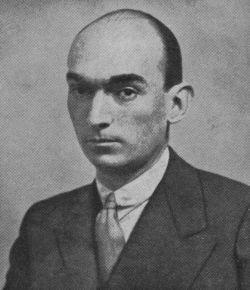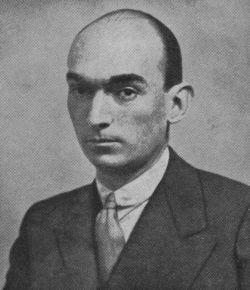By CHRISTOPHER HYDE
My wife just bought me a five-CD set of the complete piano works of Federico Mompou for our anniversary. What makes it unusual is that the set, recorded in 1974, is played entirely by the composer, who was born in 1893. (It is no longer complete, since 80 more pieces were discovered after the death of his widow in 2007.)
I can think of no other first-rate composer — one critic called him the only heir and successor of Debussy — who has recorded his own complete oeuvre. Rachmaninoff recorded quite a few of his own compositions, but by no means all of them.
I first became interested in Mompou many years ago after reading a review in a magazine was comparing his music to the ubiquitous window boxes gracing the streets of Paris and Quebec City.
That simile now seems a little precious. Mompou was certainly a miniaturist, but what he achieved in these short works can be compared without exaggeration to the accomplishments of Chopin, Scriabin or Debussy in similar forms. It also has the mark of greatness, a distinctive and recognizable voice.
Mompou was born in Barcelona of a Catalan father and a French mother. He showed early talent, and was encouraged to pursue a musical career. His family seems to have been well off, and his grandfather was the owner of a bell foundry, where the composer worked briefly as a boy. One can hear the echoes of the bells in his work.
Although he gave his first concert at age 15, Mompou was so crowd-shy that he only performed in private, much like Chopin. He decided to become a composer instead of a virtuoso pianist, and went to Paris to study in 1911. His early model was Gabriel Faure, but he soon came under the influence of Debussy and Satie.
Mompou left Paris because of World War I, returning in 1921. Twenty years later, he moved to Barcelona again at the outbreak of World War II, and remained there until his death in 1987. Musicians, if they make it past 35, tend to live a long time.
There are echoes of the guitar in his work, but nothing as overtly “Spanish” as in that of Albeniz or Granados. Mompou’s guitar is subtle, and makes its presence known through oblique rhythmical references, ostinatos and unusual chords.
Mompou was also a mystic. His first published works, “Cants magics” (1917-19), are incantations, as are his “Charmes” (1920-21) on his favorite themes: “to alleviate suffering,” “to penetrate the soul,” “to inspire love,” “to effect a cure,” “to evoke the image of the past” and “to call up joy.”
Although I like these pieces the best of all, his masterpiece is said to be “Musica Callada (Voice of Silence),” based on the poetry of Saint John of the Cross.
His motto was “begin again,” involving a return to the origins of music, a reaction to the over-intellectualizing of composition and a search for the maximum of expression with the minimum of means. Following Satie, many of his pieces are without key signatures or bar lines.
I wanted the recordings because there are no other guidelines to the performance of his work.
Most composers, at least according to first-hand accounts, were terrible interpreters of their own work. Mompou is the exception that proves the rule. He was an elegant pianist, and his mystical world so subtly personal that no one else could have recorded his work authentically.
Maybe that’s why he did it. The recording is his autobiography.
Christopher Hyde is a writer and musician who lives in Pownal. He can be reached at:
classbeat@netscape.net
Copy the Story Link
Send questions/comments to the editors.




Success. Please wait for the page to reload. If the page does not reload within 5 seconds, please refresh the page.
Enter your email and password to access comments.
Hi, to comment on stories you must . This profile is in addition to your subscription and website login.
Already have a commenting profile? .
Invalid username/password.
Please check your email to confirm and complete your registration.
Only subscribers are eligible to post comments. Please subscribe or login first for digital access. Here’s why.
Use the form below to reset your password. When you've submitted your account email, we will send an email with a reset code.